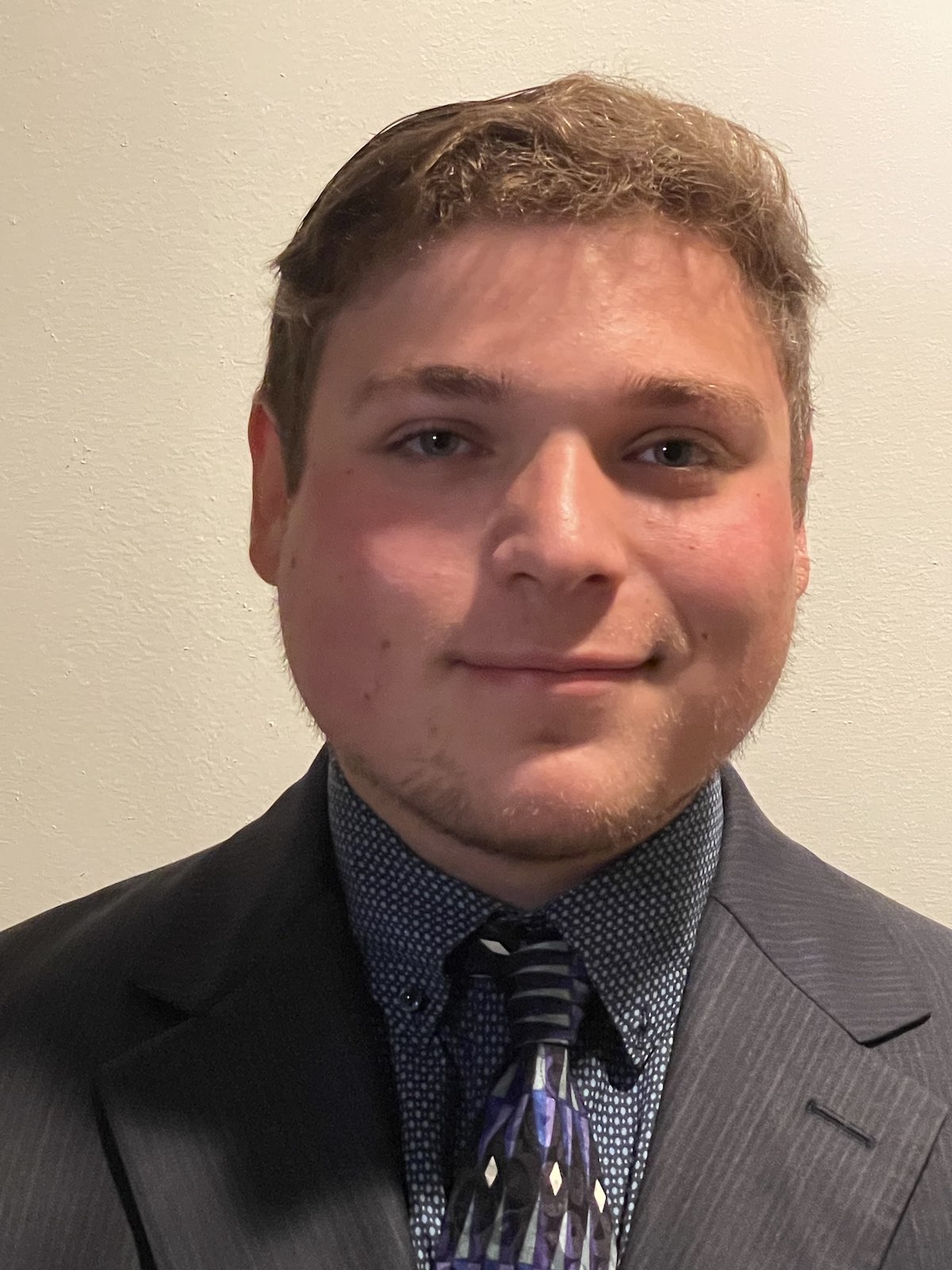Veriheal’s Innovation in Cannabis Scholarship 2021 Winners

At Veriheal, a minority-owned medical marijuana platform, we’re invested in paying it forward in the cannabis industry. That’s why we started the Veriheal Innovation in Cannabis Scholarship last year. This year, we are happy to announce we are expanding our scholarship program and awarding $20,0000 in scholarships to 20 winners.
We are committed to empowering talented individuals from a variety of fields and specialties who are pursuing higher education and will ultimately become the next generation of cannabis professionals. Applicants submitted 1000-word essays demonstrating their inventive ideas for progressing the cannabis industry.
These passionate applicants presented ideas ranging from sustainable chemistry practices to make THC extraction processes more environmentally friendly and cost-effective; a THC beverage machine to streamline customizable infused beverages and create unique consumption experiences; and community initiatives to better serve transgender cannabis users and spread awareness of the LGBT+ community’s historical connection to cannabis.
We are honored to present the 20 winners of Veriheal’s Innovation in Cannabis Scholarship 2021.
Veriheal’s Innovation in Cannabis Scholarship 2021 Winners
Matthew Aaron Vogel

Major/Program: Business Management with a Minor in Cannabis Studies
Essay Summary: Matthew proposes how a commercial-infused beverage creator—the “Infinite THCreator”—can be mainstreamed into consumption lounges and dispensaries. His device not only provides an accessible option for cannabis users who are moving away from smoking but also opens up the opportunity for unique experiences with cannabis in the same way Starbucks revolutionized how people drink coffee.
Aambr Newsome
School: University of California, Santa Cruz
Major/Program: Art
Essay Summary: Reflecting on her work experience in cannabis, Aambr envisions how the industry can invest back in the community to provide racial equity and financial sustainability for cannabis workers. She identifies how funds and taxes from the industry can provide training to budtenders for certificates, offer jobs to those formerly convicted of cannabis-related crimes, and sponsor mentorship programs.
Sandeep Singh
School: University of Michigan
Major/Program: Business Administration
Essay Summary: Sandeep conceptualizes a strain recommendation app in which consumers can create a profile and review strains and their effects (help with sleep, back pain, migraines, etc.). Like a dating app, consumers would be matched to dispensaries with strains matching their preferences and needs. The app would also provide data to producers and distributors to identify trends in the market to better serve the needs of consumers.
Camille Elliott
School: Villanova University
Major/Program: Nursing
Essay Summary: Camille is a registered nurse working towards a career as a Family Nurse Practitioner. She provides clear strategies for teaching healthcare professionals how to improve their proficiency and cultural competency for caring for medical marijuana patients.
Benjamin Sanchez
Major/Program: Chemistry with a Minor in Environmental Policy and Culture
Essay Summary: Benjamin applies green chemistry practices to identify how the extraction of THC for cannabis concentrates can be made more efficient, safer, and sustainable. He suggests strategies for minimizing waste; the use of large, energy-intensive equipment; and damage to the environment.
Sheldon Padgett
School: University of Maryland
Major/Program: Computer Science
Essay Summary: VeChain is a blockchain technology built to simplify supply chain management. It uses RFID, QR code, or NFC (near field communication) technology to assign products an “identity.” Sheldon argues how this technology can revolutionize the tracking of medical marijuana from seed to plant, and in turn, help companies identify issues along the supply chain, efficiently meet government regulations, and provide transparency to customers.
BreeAnna Nicoletti
School: Massachusetts General Hospital Institute of Health Professions
Major/Program: Direct Entry Nurse Practitioner program, Neurological Psychiatric Specialty
Essay Summary: BreeAnna is a Psychiatric Nurse Practitioner student who is motivated to change the way professionals approach mental healthcare. She visualizes plans for a psychiatric private practice in which she is licensed to recommend and prescribe medical cannabis to patients suffering from depression and anxiety.
Qamar Saitovski
School: University at Buffalo – SUNY School
Major/Program: Psychology
Essay Summary: Qamar’s original submission details the idea for a platform called RainbowWeed to increase representation in the industry for the LGBT+ community. The design aims to gather and utilize data from the community’s own experiences to improve everyday diversity and discrimination issues in the industry.
Guinevere Dorado
School: University of Maryland
Major/Program: School of Pharmacy Master of Science program in Medical Cannabis Science and Therapeutics
Essay Summary: Guinevere advocates for the implementation of informed consent in the cannabis industry. Such a flow of information would empower medical marijuana patients to review the chemical contents, benefits and side effects, and allergy information for products. It would also improve knowledge of current cannabis research for budtenders and other industry professionals to better serve customers.
India Shaniya Davis
School: University of California, Los Angeles
Major/Program: Environmental Science
Essay Summary: India is driven to perfect a CBD-infused shea butter that treats inflammation and dryness from psoriasis of the scalp to serve the Black community. She plans to test for the optimal CBD dosage and use nothing but natural ingredients to develop an accessible hair product that will raise visibility for the community.
Andrea Chaillet
School: University of Cincinnati
Major/Program: Environmental Studies major with certificates in Cannabis Studies and Horticulture
Essay Summary: Andrea identifies clear sustainable development strategies to combat the environmental impact of cannabis cultivation. She aims to make the industry more socially and economically viable across all stages of production (packaging, distribution, consumer, and post-consumer), and her intersectional approach includes, but is not limited to, decreasing water usage and air pollution; implementing bioplastics and renewable materials; and forming social justice programs.
Magaly Ordonez
School: University of Minnesota
Major/Program: Feminist Studies Ph.D. with Minors in both Race, Indigeneity, Gender and Sexuality and Heritage Studies and Public History
Essay Summary: Magaly conceives of small-scale cannabis community gardens designed to align the cannabis industry with a social justice agenda and environmental advocacy. These community gardens will allow for equitable sustainability of community relationships, provide meaningful cannabis education, and pave the way for disenfranchised communities most harmed by the War on Drugs to break socioeconomic barriers.
Louis Waryanka
School: Pennsylvania State University
Major/Program: Agricultural Science with Minors in both Agribusiness Management and Entrepreneurship and Innovation (Food and Bio-innovation focus)
Essay Summary: Louis wants to solve the problem of cannabis stalks and stems being disposed of as “waste products” from cultivation facilities due to regulations. He calls for these plant materials to be used in the creation of value-added products to promote a circular economy within the industry and save money for cultivators.
Anas Gondal
Major/Program: Biology
Essay Summary: Anas is pursuing an independent study project in pharmacology and cancer biology in Dr. Edward Levin’s laboratory at Duke University. His study will investigate whether THC is able to mediate significant neurobehavioral effects across generations of rats and whether that relationship correlates with hypomethylation or hypermethylation in the brain. Such research could inform how doctors treat patients with medical marijuana around pregnancy or conception, in particular.
Kennedy Coates
School: Agnes Scott College
Major/Program: Neuroscience
Essay Summary: Kennedy argues for the mainstreaming of untraditional cannabis-based options for combating the obesity epidemic. Her essay outlines how THCV can improve glucose levels and regulate insulin levels to stabilize blood sugar levels while CBD promotes the browning of fat cells, showing cannabis’ potential to help patients with weight loss.
Elizabeth Ranelli
School: Wagner College
Major/Program: Doctor of Nursing Practice (DNP)
Essay Summary: Elizabeth calls for the development of clinical standards for the dosage of medical marijuana prescriptions in the treatment of chronic pain. Supported by her qualitative review of the literature, she argues for states that have legalized medical marijuana to develop standards for dosage and packaging as well as patient education on benefits and risks.
Heather Edginton
School: Mills College
Major/Program: Creative Writing MFA
Essay Summary: Horses are prone to stress and physical injuries. Meanwhile, conventional equestrian pain medications like Bute are associated with liver damage. Heather hopes to revolutionize pain treatment for horses by expanding CBD research and safe product options for pets, such as syringes filled with CBD-infused paste.
Zackary Owen Thurber
School: University of Tennessee-Knoxville
Major/Program: Accounting
Essay Summary: Zackary conceptualizes school clubs that address cannabis topics with facts to dispel information. Educating youth about the uses, risks, and benefits of cannabis, without encouraging minors to use it, will reduce the social stigma surrounding the plant.
Alexandra Harris
School: University of Maryland
Major/Program: School of Pharmacy Master of Science program in Medical Cannabis Science and Therapeutics
Essay Summary: Alexandra is the Vice President of the Medical Cannabis Student Association at the University of Maryland, Baltimore. Informed by her experience as an analytical chemist and her studies, she proposes an increased emphasis on developing and enforcing reliable analytical testing methodologies. She calls for ever-evolving cannabis education and research that will ultimately help consumers make informed decisions about the products they choose.
Christina Hippensteel
School: Metropolitan State University of Denver
Major/Program: Finance
Essay Summary: Christina details a multi-step plan to phase out single-use plastics in cannabis packaging and utilize a circular economy for the creation, reuse, and destruction of compostable and reusable hemp and cannabis-based materials. These changes would save money for businesses as well as further legitimize the industry by proving its commitment to the environment.
We can’t wait to see where these students’ professional pursuits take them as they apply their specialized knowledge and skills to the cannabis space. Stay tuned for the next Veriheal Innovation in Cannabis Scholarship, which will open up in spring 2022.
